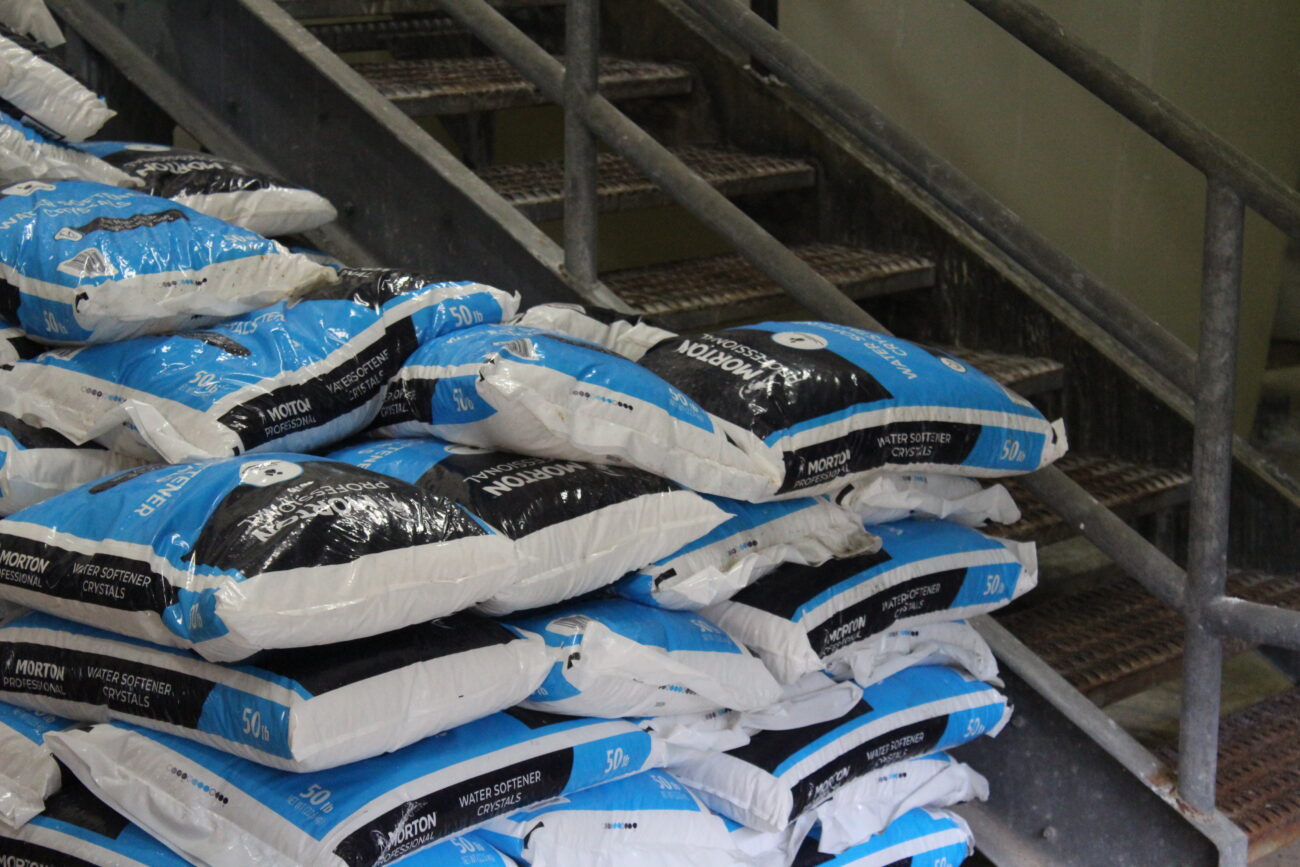
(Sage Smiley / KSTK)
Wrangell’s drinking water treatment system badly needs upgrades, but in the meantime, Wrangell officials say they’ve found strategies to decrease chemicals in Wrangell’s water that can be harmful if ingested long-term.
State regulatory agencies require communities to test for several potentially harmful substances in drinking water. One category is called “disinfection byproducts,” or substances that are formed during the water-cleaning process – often when chlorine used to treat water interacts with naturally-occurring organic material. Wrangell has historically struggled with some kinds of disinfection byproducts, especially one called HAA5s (haloacetic acids) during the late summer and fall.
If regularly ingested over a period of decades, state drinking water officials say the acids can cause cancer or exacerbate existing health issues. They can be particularly harmful to children, as well as pregnant or elderly people.
Public Works Director Tom Wetor explained to Wrangell’s borough assembly at a meeting earlier this month (September 13) that the water plant is required to complete testing a few times a year. Those tests are used as a running yearly average to determine whether a water plant is in compliance with regulatory standards. And before the state testing period in August, the sampling was looking dicey.
“Going into this sampling, we were seeing similar numbers to what we were in 2020,” Wetor told assembly members. 2020 was the last time Wrangell was out of compliance with state standards for HAA5 levels. “Our actual testing samples were 179ppb (parts per billion), which was way over the regulatory limit. So going into the sampling, we were seeing similar numbers, and color and turbidity – basically, the quality of the source water before it meets the water treatment plant. It was worse this year than it was last year.”
It’s a bad time of year for Wrangell’s drinking water clarity. The increased color and turbidity – lack of clarity – come from an increased amount of organic material from dead leaves and other natural substances in Wrangell’s open-air drinking water reservoirs. The murkier water is harder to filter, and can result in plant operators having to add more chlorine on the back end of the water treatment process to properly clean water. That in turn can increase disinfection byproducts.
It’s an ongoing issue that is part of the reason the local government has committed over $1.1 million towards designing a new water treatment plant.
However, this year’s high August haloacetic acid numbers, taken before the state-mandated sampling period, didn’t result in super-high numbers to send the community over the yearly running average limit.
“The good news is we are going to be in compliance on our running average for our disinfection byproducts,” Wetor said, continuing: “The bad news is we were over the regulatory limit for specifically the HAA5s – which we have historically struggled with – for the month of August. The actual number was 78ppb for the haloacetic acids (HAA5s), and the regulatory limit is 60ppb.”
Wetor told Wrangell’s assembly that’s because of the actions of water plant operators.
“We basically slowed the flow through the plant by about 35%, we reduced the levels of tanks as far as we could to increase ozone on the front end and then decrease contact time with chlorine on the back end, which continued tributes to the disinfection byproducts,” Wetor explained, “And we swapped out basically every spare part and component that we had – we took a number of things apart and cleaned out what we could. I would say we performed well considering what we were working with. We were still over the regulatory limit, but overall, this works on a running yearly average. So with these numbers, we will be in compliance with the state we will be under that yearly average.”
Wetor says that generally, Wrangell’s water quality is far better between January and May of a given year, and is often at its worst between August and November.
Get in touch with KSTK at news@kstk.org or (907) 874-2345.











